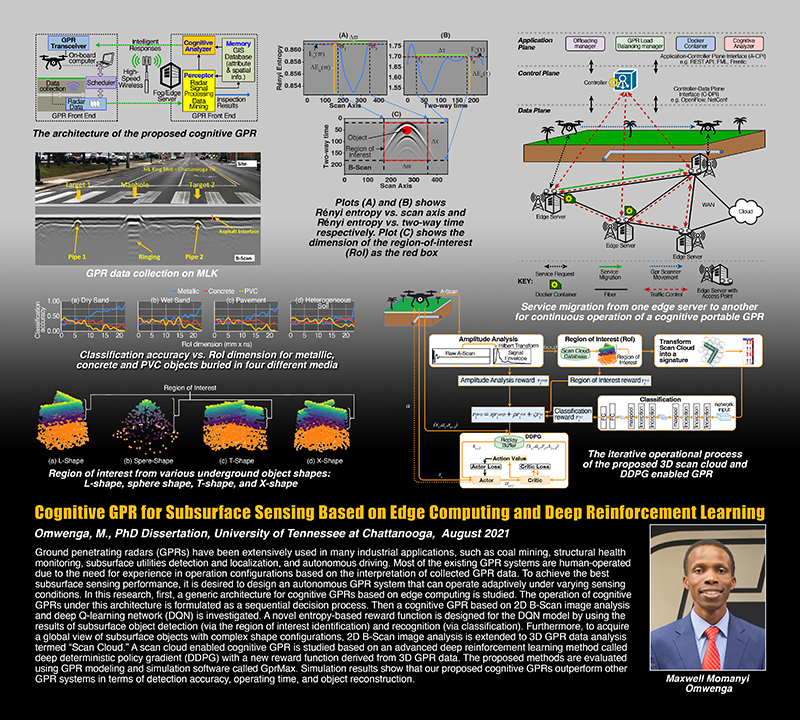Maxwell Omwenga
Cognitive GPR for subsurface sensing based on edge computing and deep reinforcement learning
A Dissertation Presented for the Doctor of Philosophy in Computational Science: Computer Science, The University of Tennessee at Chattanooga
Maxwell Omwenga, August 2021
Abstract:
Ground penetrating radars (GPRs) have been extensively used in many industrial applications, such as coal mining, structural health monitoring, subsurface utilities detection and localization, and autonomous driving. Most of the existing GPR systems are human-operated due to the need for experience in operation configurations based on the interpretation of collected GPR data. To achieve the best subsurface sensing performance, it is desired to design an autonomous GPR system that can operate adaptively under varying sensing conditions. In this research, first, a generic architecture for cognitive GPRs based on edge computing is studied. The operation of cognitive GPRs under this architecture is formulated as a sequential decision process. Then a cognitive GPR based on 2D B-Scan image analysis and deep Q-learning network (DQN) is investigated. A novel entropy-based reward function is designed for the DQN model by using the results of subsurface object detection (via the region of interest identification) and recognition (via classification). Furthermore, to acquire a global view of subsurface objects with complex shape configurations, 2D B-Scan image analysis is extended to 3D GPR data analysis termed “Scan Cloud.” A scan cloud-enabled cognitive GPR is studied based on an advanced deep reinforcement learning method called deep deterministic policy gradient (DDPG) with a new reward function derived from 3D GPR data. The proposed methods are evaluated using GPR modeling and simulation software called GprMax. Simulation results show that our proposed cognitive GPRs outperform other GPR systems in terms of detection accuracy, operating time, and object reconstruction.
Click here to access a copy of Maxwell's dissertation.
